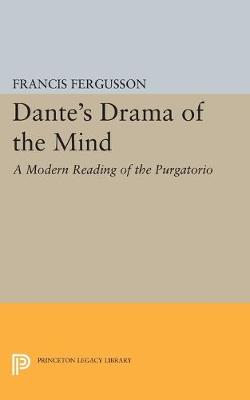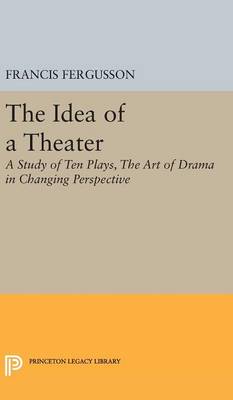Princeton Legacy Library
2 total works
The individual insights employed in this reading of the Purgatorio are those of a twentieth-century mind, as are the author's references: T. S. Eliot, Henry James, I.A. Richards, Jacques Maritain, and many others. Purposely avoiding the pitfalls of Dantean scholarship, Mr. Fergusson reveals the drama of the order of Dante's vision, the developed form of the poetry, and the meaning of the canticle for modern man. "The Purgatorio," he says, "has light to shed upon history and its making; upon psychology, ethics, and education; upon politics and the transmission of our tradition. There are many reasons for learning to read it; it is a central clue." This brilliantly written book by the author of The Idea of a Theater is itself a central clue to the meaning of the Purgatorio. Originally published in 1953. The Princeton Legacy Library uses the latest print-on-demand technology to again make available previously out-of-print books from the distinguished backlist of Princeton University Press. These editions preserve the original texts of these important books while presenting them in durable paperback and hardcover editions.
The goal of the Princeton Legacy Library is to vastly increase access to the rich scholarly heritage found in the thousands of books published by Princeton University Press since its founding in 1905.
The goal of the Princeton Legacy Library is to vastly increase access to the rich scholarly heritage found in the thousands of books published by Princeton University Press since its founding in 1905.
An original and beautifully written book on changing perspectives in the art of theater. Through a study of nine plays--Oedipus Rex, Berenice, Tristan und Isolde, Hamlet, Ghosts, The Cherry Orchard, Six Characters in Search of an Author, Noah, Murder in the Cathedral--the author shows how all playwrights seek to "hold the mirror up to nature" and how in this respect the art of drama is always the same, varying only with the philosophical and aesthetic concepts of each age. The Idea of a Theater will delight both readers with a special interest in drama and those who read drama as a source of insight into man's nature and man's changing ideas of himself. Originally published in 1949. The Princeton Legacy Library uses the latest print-on-demand technology to again make available previously out-of-print books from the distinguished backlist of Princeton University Press. These editions preserve the original texts of these important books while presenting them in durable paperback and hardcover editions.
The goal of the Princeton Legacy Library is to vastly increase access to the rich scholarly heritage found in the thousands of books published by Princeton University Press since its founding in 1905.
The goal of the Princeton Legacy Library is to vastly increase access to the rich scholarly heritage found in the thousands of books published by Princeton University Press since its founding in 1905.

